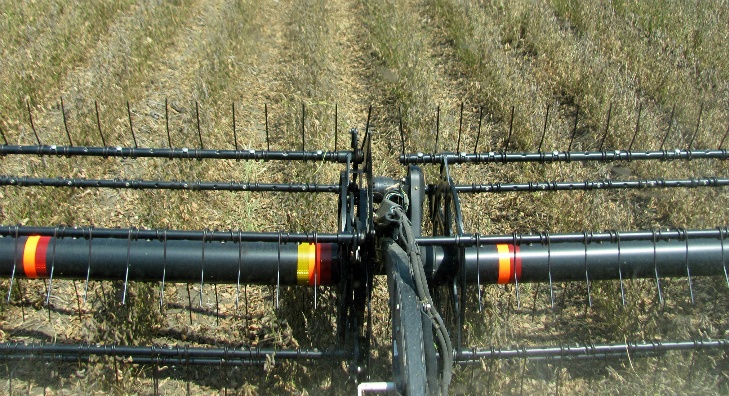Heavy August rains could lead to soybean losses especially in Northeast Arkansas
by August 27, 2018 7:59 pm 388 views

Photo credit: University of Arkansas System Division of Agriculture
Torrential rains during August have slowed the Arkansas row crop harvest, and in parts of Northeast Arkansas soybean farmers could lose up to 15% of their total crop, according to the University of Arkansas Division of Agriculture.
Some farms have received at least 13 inches of rain this month, and during one deluge, 10 inches of rain fell in less than a 24-hour period in parts of Mississippi County earlier this month, according to the National Weather Service.
Mississippi County farmer Mike Sullivan said his soybeans are rotting in the field and his rice is sprouting in the heads, and there’s nothing he can do about it. Sullivan can’t get the water out of his fields because the ditches are all full, he said. Water has broken over the levees in his rice fields, he said, and some of his neighbors even have water in their houses. It’s the worst Sullivan has witnessed in 35 years farming in Mississippi County. Some fields were underwater for a week or more, he added.
“I’ve never seen anything like this in my lifetime, where the rain all came down at once,” he said.
Allison Howell, Clay County Extension agriculture agent, said some soybeans, cotton and corn are under water after Clay County had 10 inches of rain in one night followed by 3 inches the next day.
“They’re pumping water out of soybean fields at Knob,” she said.
Soybeans will be in the lower ends of fields where the water is deeper. Higher ground in the fields will see less damage. Farmers won’t know the extent of crop losses until combines begin work in the fields.
Rice Agronomist Jarrod Hardke said rice is sprouting in the heads in some areas, but it’s not widespread. High winds accompanying storms caused lodging in scattered fields all over the rice growing areas of the state, Hardke said. Downed rice takes longer to dry and is a real mess to harvest, he said. The Mississippi County rice crop has received minimal damage, but ditches are full and water on those fields can’t drain. The main problem for many rice farmers now is the continuing delay of harvest, he said.
“Rice growers were ready to roll when the rain hit, and flooded fields have delayed some of them as long as two weeks,” Hardke said. “With water backed up everywhere, there’s no place for it to go. The longer rice is in the field, the more bad things can happen.”
Rain has delayed corn harvest in a lot of areas, said Jason Kelley, extension agronomist for corn, wheat and feed grains. The corn crop is mature, but the constant rains have delayed the drying and harvest, he added.
